“I’ve brought that chef mentality to whatever I do. There’s not a lot of standing around and admiring my work. It’s, ‘Right, this needs to get done’”: Meet JWJ’s Rich Jones, the chef who turned luthier – and is serving up some mighty fine acoustics
From the pass to Joe Pass, Jones is cooking up a storm in his workshop – and he says it’s all about the work ethic
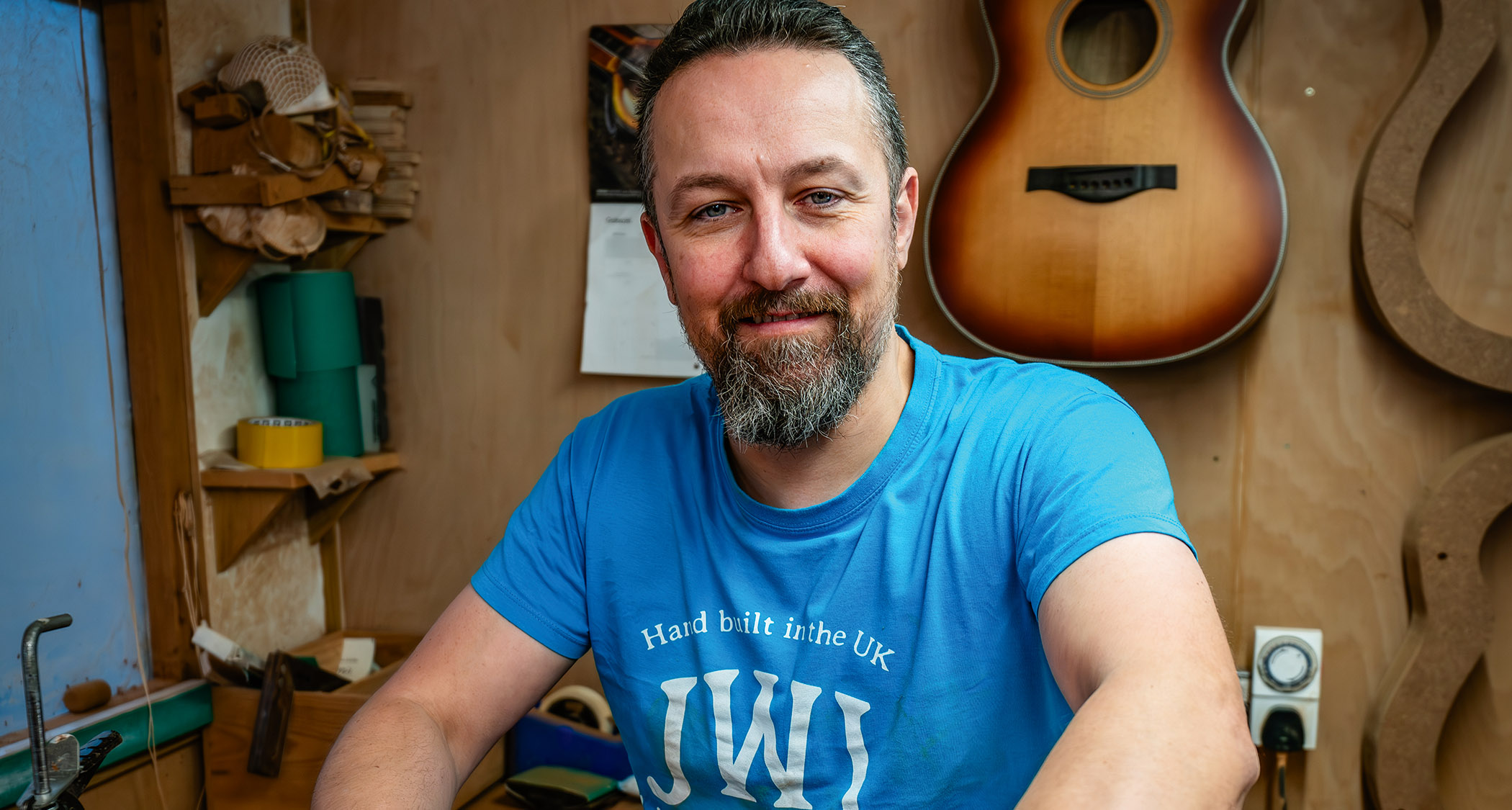
After just five years as a lone builder, chef-turned-luthier Rich Jones has been making instruments that have created quite a buzz among the customarily reserved acoustic guitar fraternity.
Certainly, the few we have had pass through our hands have been full of surprises with top-class workmanship and amazing, musical tone very much to the fore. And when you consider that those instruments were built in a premises little bigger than the average garden shed, eyebrows are raised and the plot thickens even more.
When we encountered the Select Series, we took the opportunity to talk to Rich about his transition from one profession to the other.
“The best chefs aren’t necessarily the most creative,” he tells us. “They’re the ones who are organised and can manage their time. Those who can’t end up rushing and making mistakes, and I think the same applies to what I do now. I have to be organised to give myself time to do each job properly.”
This year, things at JWJ are pushing forward with a move into larger premises already on the cards…
What do you consider will be the main benefits from expanding the business and moving into a larger workshop?
The workshop I’m moving into is probably six times the size of what I’ve got now. And it’ll also mean that I can bring a few things in
“It means I can get a better workflow. For example, when I’m building bodies I’ve got jigs out for bending the sides, I’ve got jigs out for clamping the braces, and then I’ve got to bring other tools out to make the braces… And this week I’ll just be constantly moving things from one place to another, so that I can bring this or that tool out, and it slows me down – it’s kind of frustrating. So it would just be nice to have everything in its own space.
Get The Pick Newsletter
All the latest guitar news, interviews, lessons, reviews, deals and more, direct to your inbox!
“The workshop I’m moving into is probably six times the size of what I’ve got now. And it’ll also mean that I can bring a few things in, like a drum sander, which will mean that I can use more figured woods. Because at the moment I’ve got to use a plane, which would chip highly figured woods.
“So it’s a case of either I do it very laboriously by hand, or I don’t do it. A drum sander will help me get some more consistency across what I do. So, really, it’s about trying to become more efficient, build more guitars, and get more guitars to people, you know?”
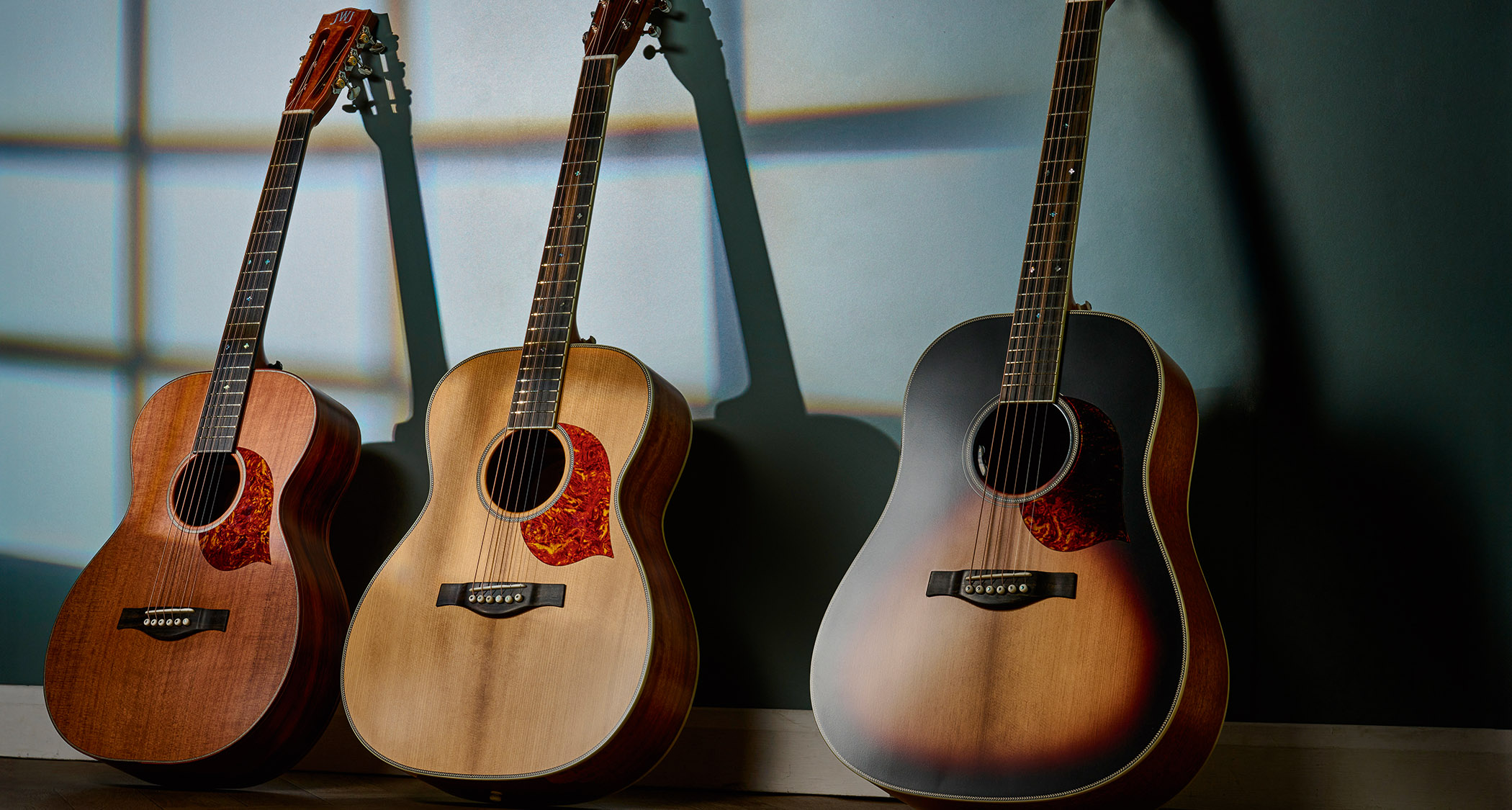
Your build time is very quick – often a matter of weeks, rather than months, which is a lot speedier than many lone-builder operations.
“Yeah, it’s just as I was saying earlier; I think it comes from being a chef, really, where you look for anything, literally anything you can do, to save a few seconds in service. Because those few seconds add up over the course of the evening. And your expectation, when you’re in hospitality, is there will be probably an hour a day where you’re in trouble; you’ve got too much work on, you know? So you’re constantly looking to get ahead.
“And I’ve just brought that mentality to whatever I do, really. I’m always looking at, ‘What will make this quicker?’ ‘What will make this more efficient?’ And I work at that kind of pace all the time. There’s not a lot of standing around and admiring my work. It’s, ‘Right, this needs to get done.’”
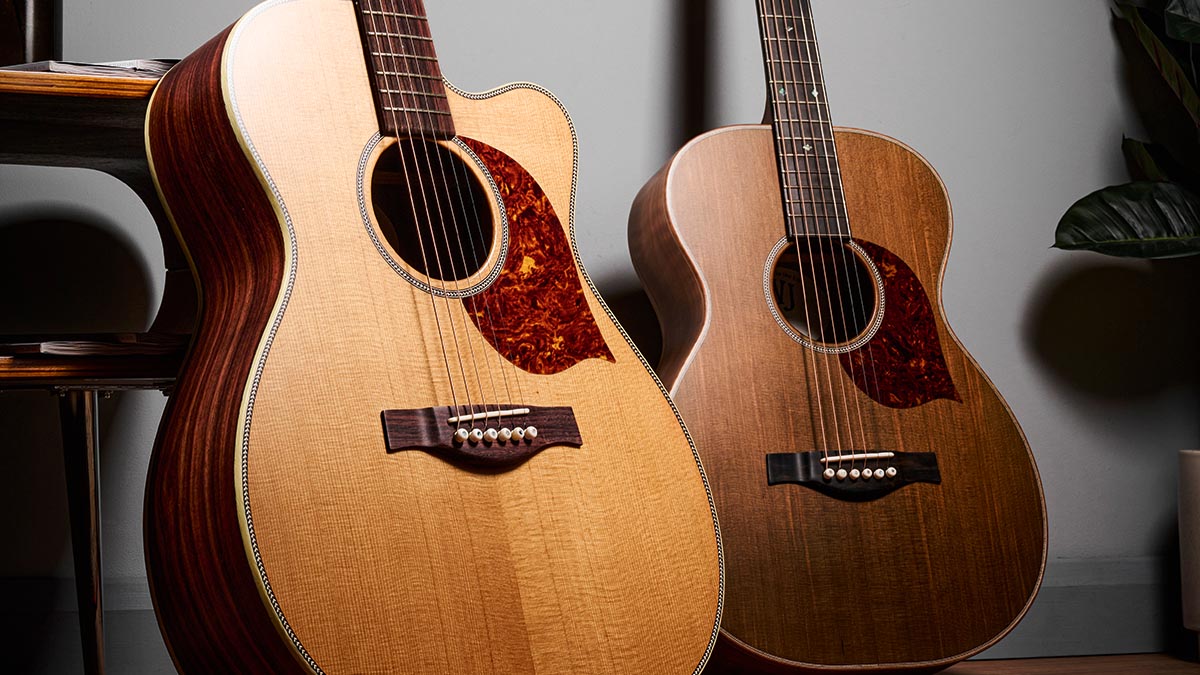
“I’m also conscious that it’s fine to make a living out of your hobby, but you have to actually make a living, otherwise you’re just doing your hobby while other people pay your way and that’s not fair. So it’s not just about me having fun – the end users aren’t paying me to have fun, are they?
“It’s great that I do something that I love, but people are paying for an instrument that they want to be good. They’re not paying me just to have a great day. They want something good at the end of it, don’t they? So, yeah, that’s kind of my work ethic, really. I’m efficient and I just try to work hard and get the orders to people as soon as I can.”
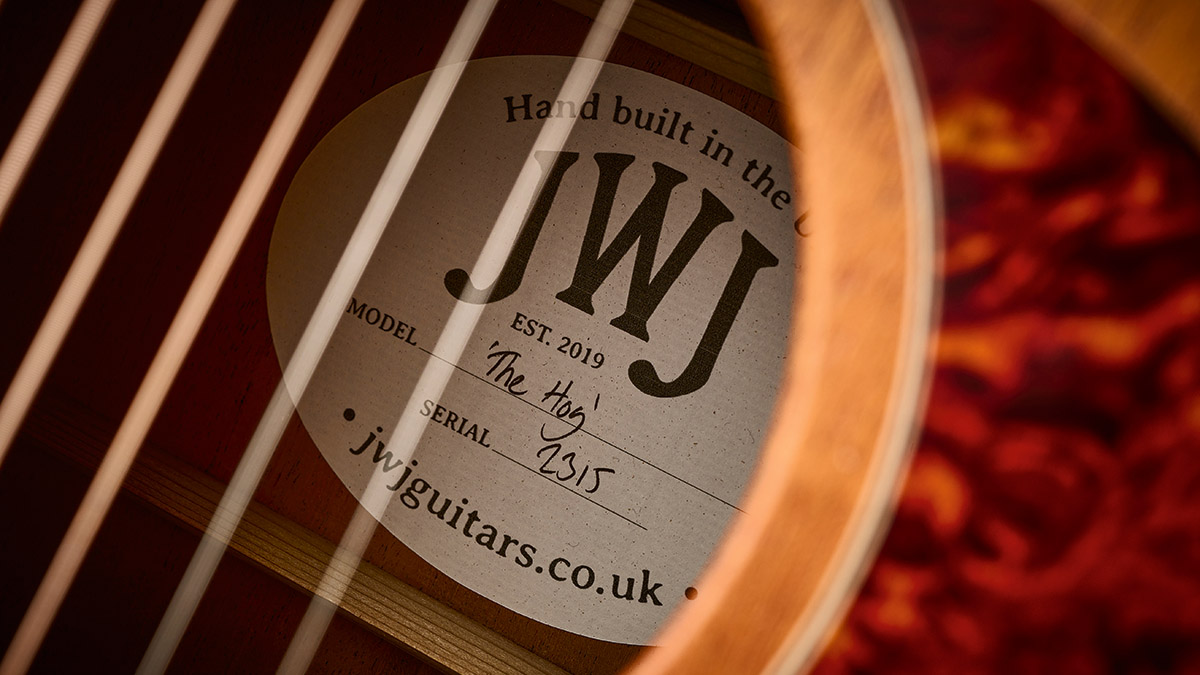
What’s your waiting list like at present?
“We were at a steady six-month waiting list for a couple of years, but then [Guitarist’s] Hog review went out and it jumped up to a year. So I’m probably back down to about nine months now. It’s definitely taken off better and quicker than I thought it would when I started this five years ago.
“But we had that first year of the pandemic where nothing happened. I mean, that was a write-off. So, really, it’s been four years since I’ve been able to get the guitars out to people. And I’m quite surprised as to how quickly I’ve managed to make a living.
“I had a part-time job to start with, and that didn’t last very long once the orders started coming in. I set myself minimum targets for sales and I said, ‘Well, if I can’t sell that much, then I need to rethink this and go back and find a job.’ And I doubled all of those.”
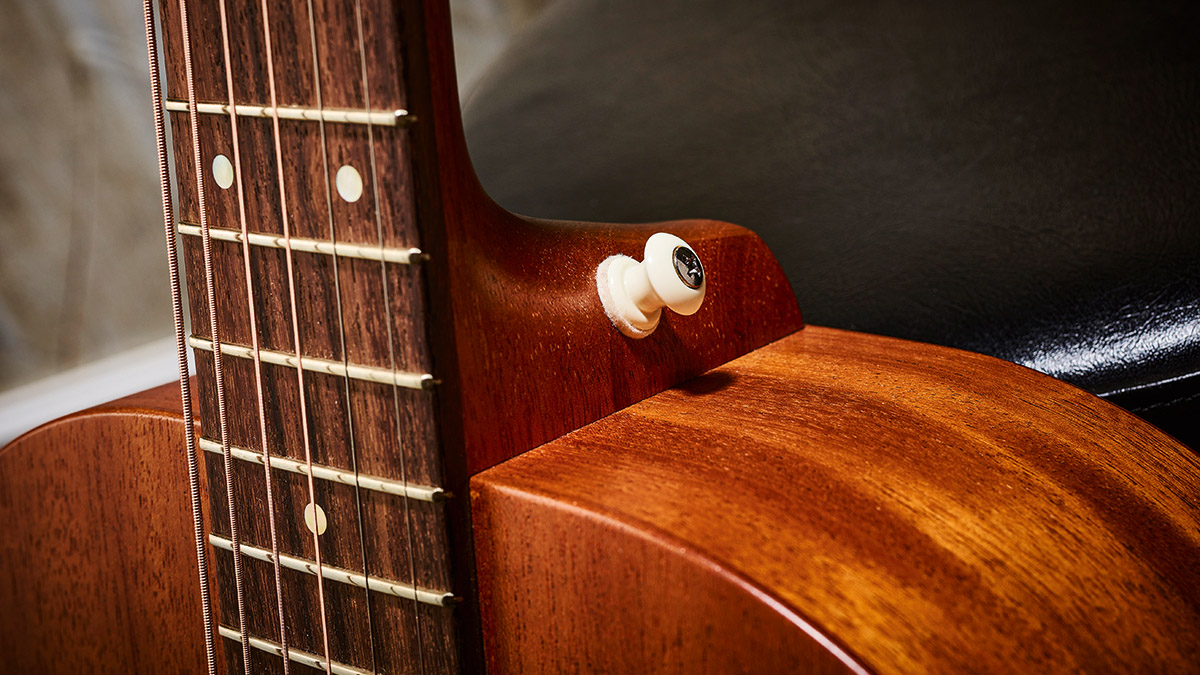
Apart from moving to the new workshop, are there any more changes planned, like new instrument designs, for instance?
“The other thing is I’m working on another series, a sort of in-between one called the Special Series. I’ve done a few; it’s kind of in between The Hog and The Standard. Obviously, The Hog’s been really popular, so I’ve tried a few prototypes. I’m not quite set on exactly what the final specs of it will be, but maybe sometime later this year I’ll have that ready to go.”
- For more details, head over to JWJ Guitars.
With over 30 years’ experience writing for guitar magazines, including at one time occupying the role of editor for Guitarist and Guitar Techniques, David is also the best-selling author of a number of guitar books for Sanctuary Publishing, Music Sales, Mel Bay and Hal Leonard. As a player he has performed with blues sax legend Dick Heckstall-Smith, played rock ’n’ roll in Marty Wilde’s band, duetted with Martin Taylor and taken part in charity gigs backing Gary Moore, Bernie Marsden and Robbie McIntosh, among others. An avid composer of acoustic guitar instrumentals, he has released two acclaimed albums, Nocturnal and Arboretum.
You must confirm your public display name before commenting
Please logout and then login again, you will then be prompted to enter your display name.
“Among the most sought-after of all rhythm guitars… a power and projection unsurpassed by any other archtop”: Stromberg has made a long-awaited comeback, and we got our hands on its new Master 400 – a holy grail archtop with a price to match
The heaviest acoustic guitar ever made? Two budding builders craft an acoustic entirely from concrete because they “thought the idea was really funny”











